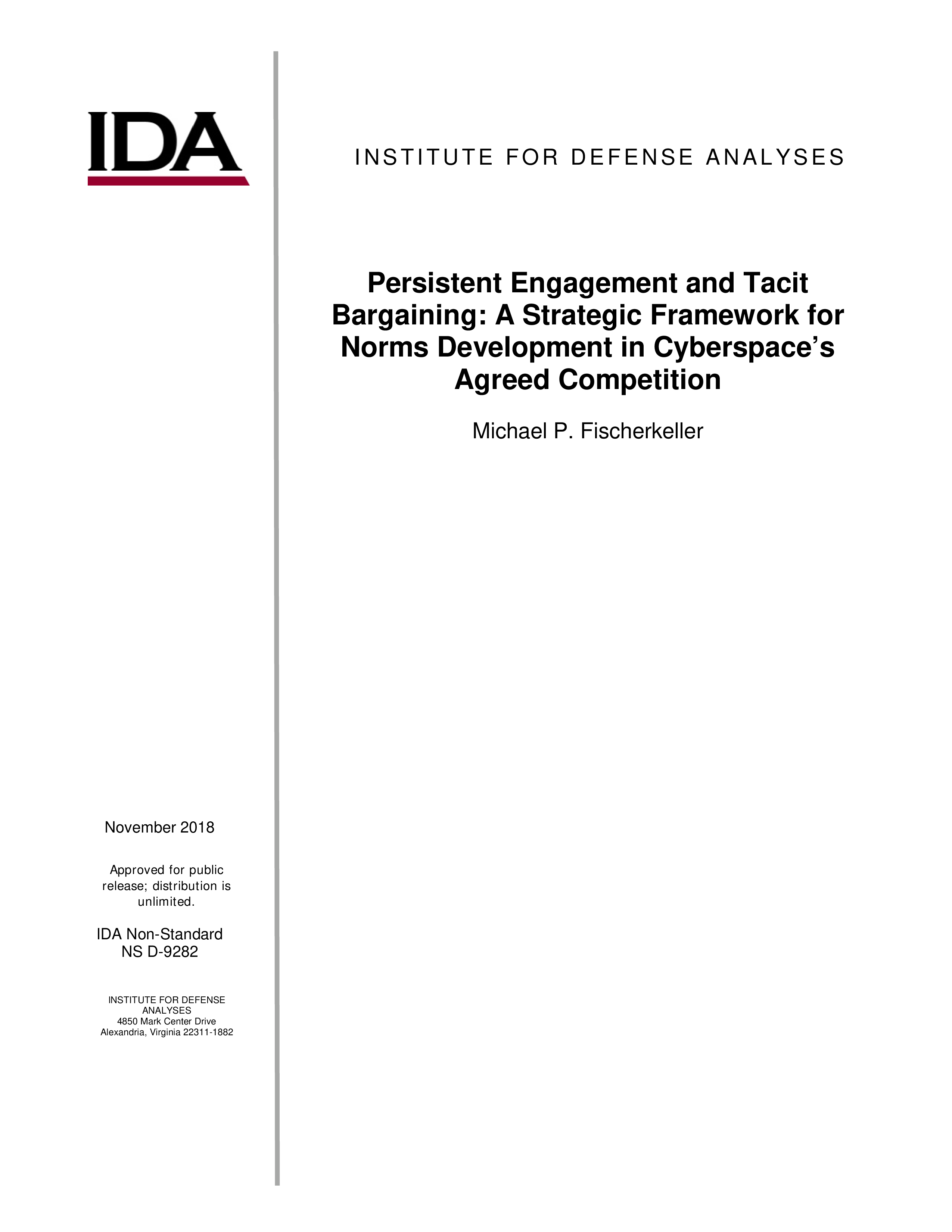Interactions in the strategic competitive space below the threshold of armed conflict in the cyberspace strategic environment represent an agreed competition, a structure and dynamic characterized by actors seeking to gain strategic advantage through cyber campaigns/operations. This strategic competitive space is still maturing, however, and the potential exists for differing perspectives, ambiguity, or uncertainty over specific types of “acceptable” campaigns/operations short of armed conflict that could lead to unintended or non-deliberate escalation out of agreed competition. It is imperative, then, that a strategic process be identified through which states, without escalating to armed conflict, can arrive at understandings of acceptable behavior, expressed in this article as boundary conditions of agreed competition but more routinely called cyber norms. Thomas Schelling invested considerable time studying this same conceptual problem and this article applies his scholarship on informal agreements and tacit bargaining to the cyberspace strategic environment and agreed competition. It is concluded that the process of tacit bargaining is well-suited for the challenge of developing cyber norms in agreed competition, a strategy of persistent engagement supports that process, but existing U.S. policy guidance needed to facilitate its implementation falls short of what is necessary to increase the likelihood of its success.

